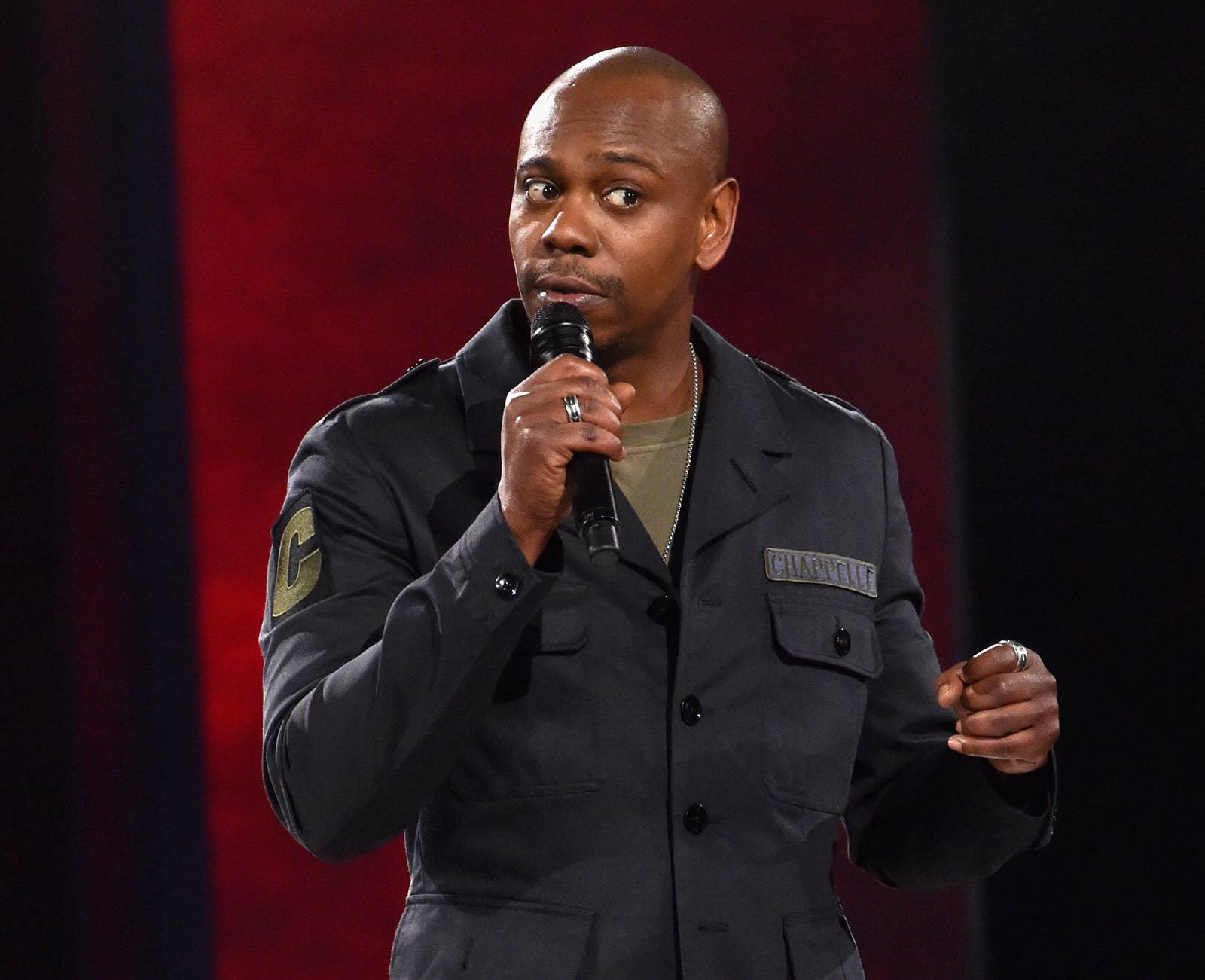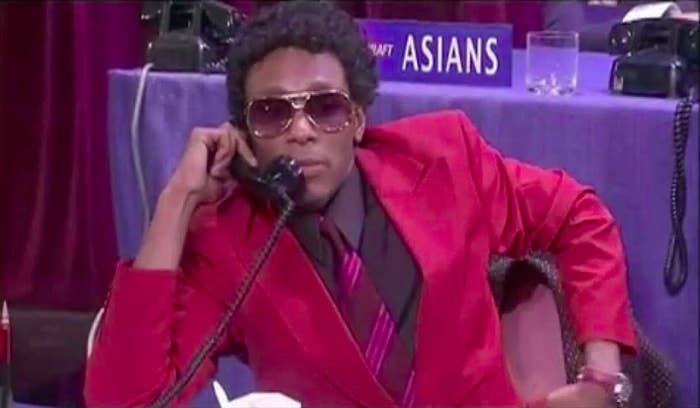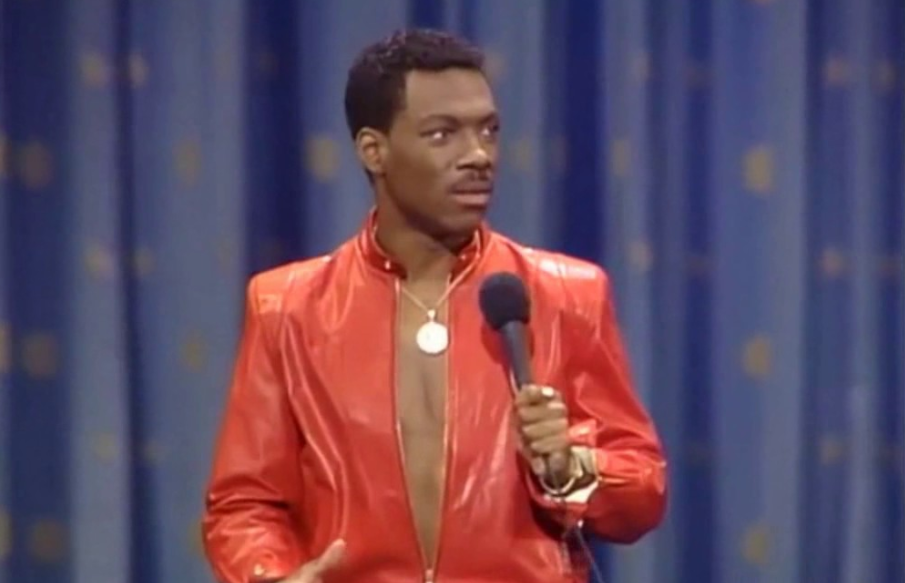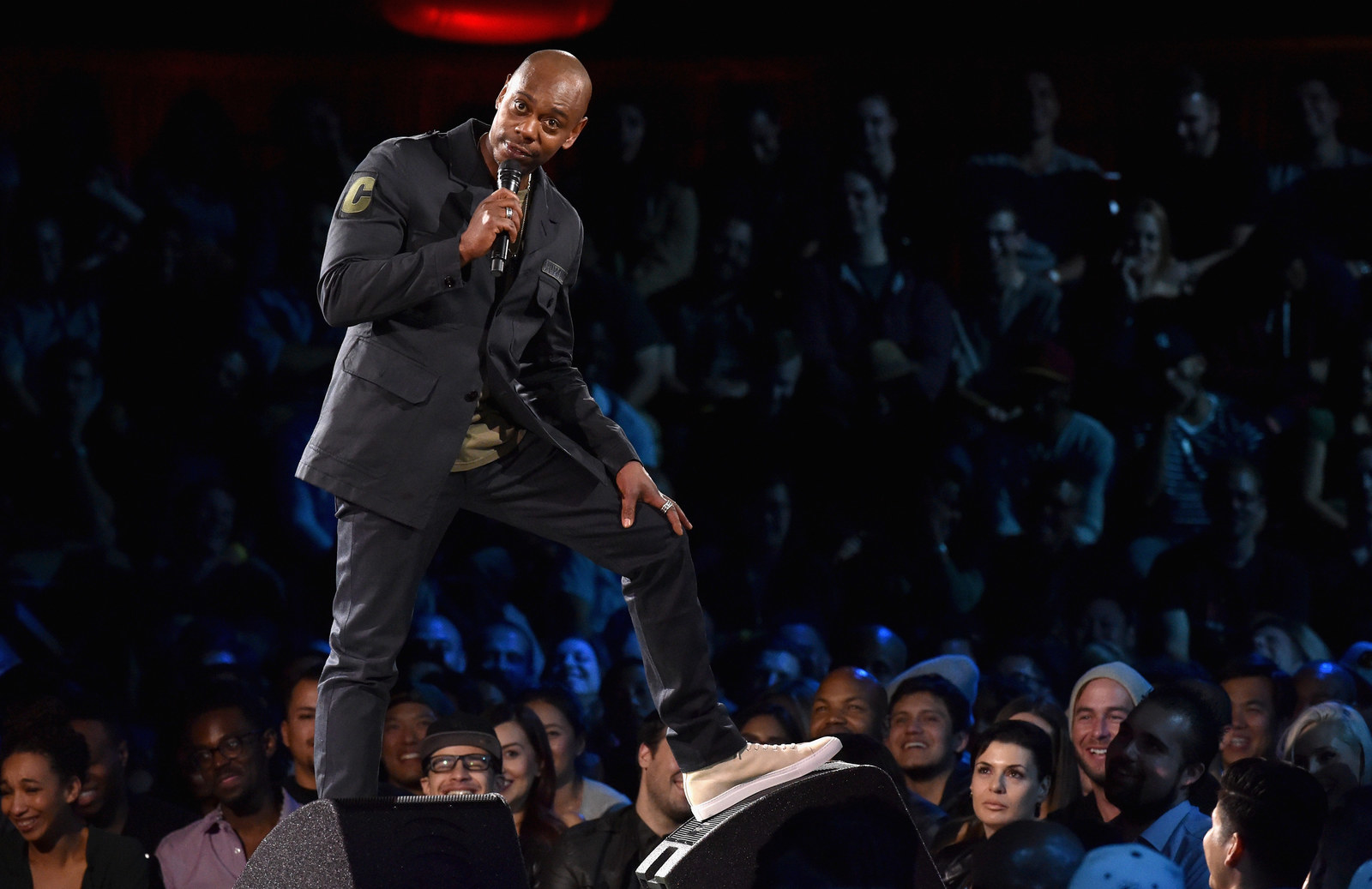
I have fond memories growing up in Buffalo, New York, listening to my dad, grandmother, and uncles sitting around the kitchen table sipping coffee after dinner, sharing stories of navigating a racist world. My grandmother would talk about the camaraderie she had with the all-black kitchen staff she worked with at hotels and on trains. Many times, these stories were accompanied by raucous laughter, but sometimes, they were followed by painful silence. My mother would make fun of our hood-ass family members who could never stay out of trouble. The first time I felt like I saw experiences like theirs reflected in the mainstream media was when Dave Chappelle’s sketch comedy show, Chappelle's Show, launched in 2003. He hilariously captured and exaggerated stories like these, crowning him a titan of comedy and a pop culture icon.

Chappelle was known for crafting jokes parodying racial stereotypes and the absurdity of racism. “The Mad Real World” flipped the script on the popular MTV reality show Real World by putting “one white person around the craziest black people we could find.” And the “Niggar Family” skit, featuring a white family with the last name Niggar being praised for using stereotypes about black people, played with language and racist ideology. The sketches stood in stark contrast to SNL’s stale slapstick shenanigans and awkwardly clumsy skits. Chappelle's Show, which ran on Comedy Central until 2006, was nuanced, politically smart, and hella black. However, Chappelle abruptly ended the show during production on the third season after signing a $50 million contract for two more seasons. Citing stress and manipulation, Chappelle took a sabbatical in South Africa and then went home to his farm in Ohio.
Many black artists are leery of being deliberately thwarted by white folks, whether due to systemic manipulation or cultural appropriation. Several hip-hop artists, like Lauryn Hill, Frank Ocean, and even Jay Z, have criticized the corporate cultural machine that exploits music for capital. Legends like Nina Simone and James Baldwin fled the United States for France, weary of America’s specific brand of racism and bigotry. Black folks understand the emotional toll of microaggressions and the nuances of racism in each generation. We respected Chappelle’s departure, yet mourned the loss of one of the greatest sketch comedy shows ever. This week, Chappelle returned to television with the much-anticipated debut of two of three Netflix stand-up comedy specials, The Age of Spin: Live at The Hollywood Palladium and Deep in the Heart of Texas: Live at Austin City Limits.
Stand-up comedy is unique in that the performance is essentially personal: It reveals how a comedian thinks about the world, then reorganizes the disappointments, injustices, and humiliation into comedic fodder. This is why Chappelle’s transphobic jokes in Deep in the Heart of Texas are that much more disappointing. I’ve appreciated his take on race and the voice he’s had in pop culture. Although he could be misogynistic at times, and has prefaced his multiple gay sex jokes with a disclaimer that he has nothing against gay people, I've still respected him. Many outspoken cis straight artists I love struggle with intersectional politics, but after all this time, I wanted Chappelle to be better than that. Instead, he's two Hidden Colors DVDs away from ashy hotep foolishness. Basically, Chappelle is a Black Lives Matter kind of guy — if those black lives belong to straight cisgender men.

In the first two minutes of the Austin special, Chappelle references “dykes” in flannel and jail rape. Gay jokes are just as passé and lazy as black jokes, but from Eddie Murphy’s notorious opening of his classic stand-up special Delirious to Tracy Morgan’s epic tirade about stabbing his son to death if he were gay, a lot of straight cis comedians will go there. But these jokes aren’t only the provenance of comedians — gay sex jokes, mocking of femininity, and men pretending to be women for laughs are all longtime staples of straight male culture. The pervasiveness of these jokes reveals that many cisgender men choose to define themselves by what they are not. If Chappelle’s jokes at queer people’s expense were accompanied by a Pop Up Video–style parenthetical, they would say something like, "This guy wants you to know that he’s definitely NOT gay.”
When straight cis men aren’t denigrating queer people to affirm their masculinity, they might be paying lip service to women’s rights only as a ruse to get some ass. Chappelle jokes about asking two women about Janay Rice — who was notoriously knocked unconscious by current husband, then-boyfriend Ray Rice in an elevator — and feigns concern, only to preserve the prospect of having a threesome with them. He later strings together a few skits about the word “pussy” and male gynecologists, who, according to Chappelle, shouldn’t practice gynecological medicine because men can’t help but be a little rapey and out of control.
This is the crux of the cisgender problem — cis people’s tendency to center themselves in the transgender experience.
All of this is the build up to the transgender skit that dampened the whole Deep in the Heart of Texas special for me. Chappelle tells a story about being at a party where a trans girl gets high or drunk and proceeds to get sick and pass out. For Chappelle, “Whatever it was, it was definitely a man in a dress.” He moseys over and unassumingly asks, “Is he okay?” He’s admonished for using the wrong pronoun and now is immediately offended. “I support anyone’s right to be who they are inside, but to what degree do I have to participate in your self-image? Why do I have to switch up my pronoun game for this motherfucker?”
And this is the crux of the cisgender problem — cis people’s tendency to center themselves in the transgender experience. These aren’t your pronouns. They belong to the person you’re addressing. Using the correct pronouns isn’t meant to validate someone’s whimsical sense of self; it’s a basic courtesy and shows respect for who someone is. If Chappelle is clutch-my-pearls offended by incidents like this, it’s not because of our demand to be respected, but because of what that demand says about his own fragile gender identity. The one thing I’ve learned about masculinity as a transgender man is that its power and definition relies heavily on how well it performs away from femininity.

Masculinity can be compromised and undone by something as innocuous as the color pink or using the correct pronoun — which I promise won’t kill you, straight cis men. The transgender boogeyman isn’t going to steal away your manhood in the dead of night because you had the gall to respect people different from you. Your masculinity is secure, and it costs nothing to rightfully acknowledge people when they tell you who they are. Trans folks aren’t making a personal “self-image” choice about who we think we are in the world — it is our truth. This truth that takes a hammer to the false binary system of gender.
But the less room straight cisgender men create for ideas, people, or language that isn’t masculine, the more intact their perceived manhood will stay.
Chappelle goes on to compare being transgender to putting on an argyle sweater and pretending to be white to get respect and a bank loan. But while race and gender are both social constructs to a certain extent, they don’t operate in the same way. Many light-skinned, light-eyed black folks throughout American history have passed for white to gain access to economic and educational opportunities that were otherwise not afforded to them due to white supremacy — or else they simply abhorred being black. The only time passing for black is a thing is when it’s a creepy social experiment, appropriation, or a harebrained attempt to win a minority scholarship.
Gender identity, however, is not a choice, and being transgender is not an act of passing — it’s a true state of being. My masculinity is tethered to something deeper than social gain, fetish, or privilege. No one has ever thrown themselves in front of a Mack truck because they felt white inside. No one has ever been beaten to death because they really felt they were black. The rhetoric in Chappelle’s jokes fortifies the narrative that trans people aren’t real and are therefore deceiving cis people — and this is almost always the rationale for killing trans people, particularly trans women of color. Seven transgender women have been killed so far this year, putting 2017 on track to be the deadliest year on record for trans people. And according to a report by the Anti-Violence Project, transgender women account for 72% of hate-based homicides.
Allyship and indifference aren’t the same thing, and no one should be proud of not doing harm by not doing shit.
In his Austin special, Chappelle has a set of jokes where he details getting ridiculed by gay bloggers. He’s aghast at the criticism. “I’m your ally, motherfucker,” he says. “I ain’t trying to stop gay people. I got better shit to do.” But allyship and indifference aren’t the same thing, and no one should be proud of not doing harm by not doing shit. This doesn’t make anyone an ally — it makes them a bystander.
The best parts of Chappelle’s legacy involve the intelligence of his social commentary and the genius and originality of his skits: They reflected moments in pop culture and race relations that we hadn’t seen before. He parodied the performance of blackness in his Lil Jon skits without mocking black people. His "Racial Draft" sketch is about the social construction of race — and it's brilliant. I thought he would be better than referring to a trans woman or a genderqueer person as “it.” He still could have been funny and irreverent without reducing our existence to playing dress-up. With allies like this, we don’t need enemies.
